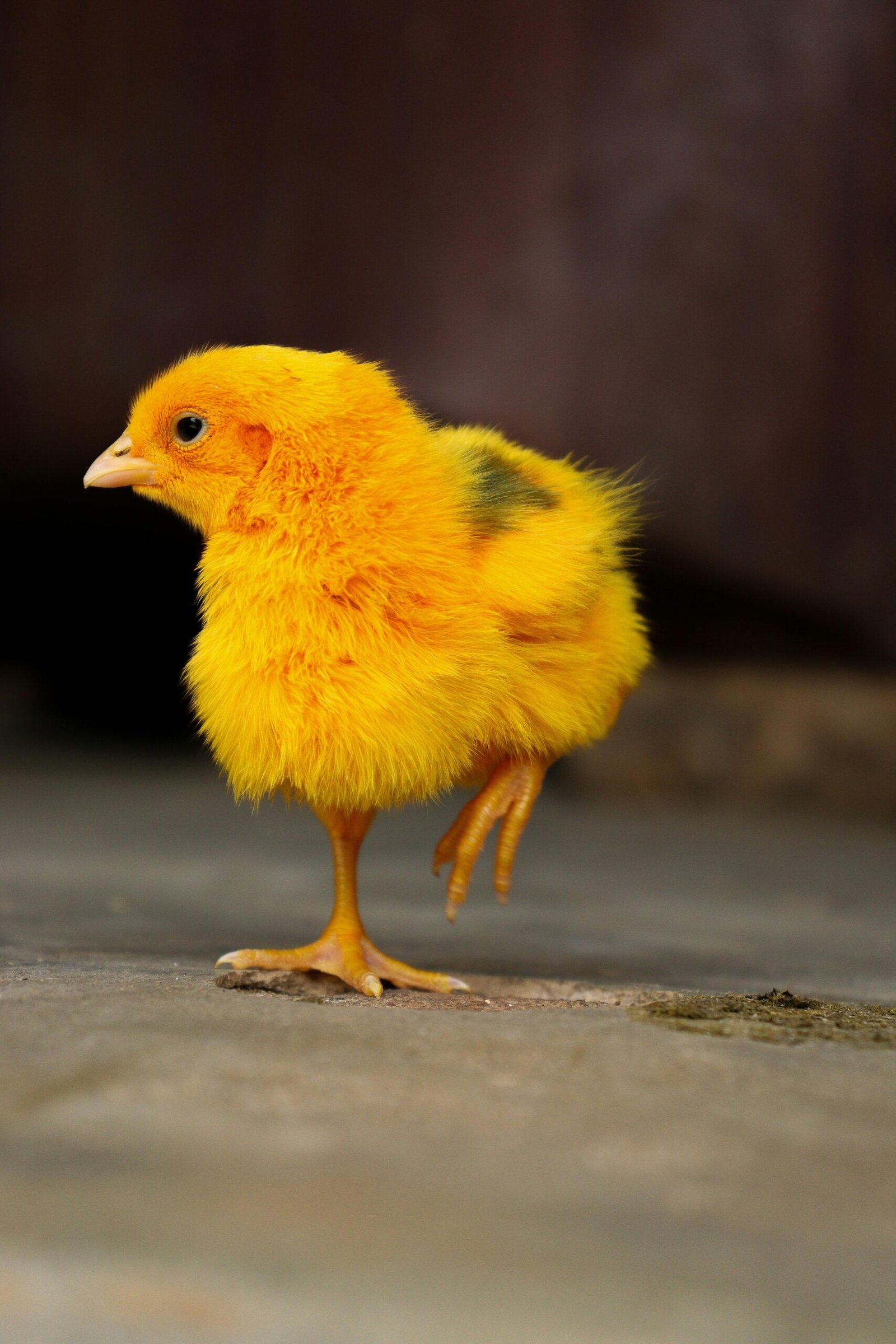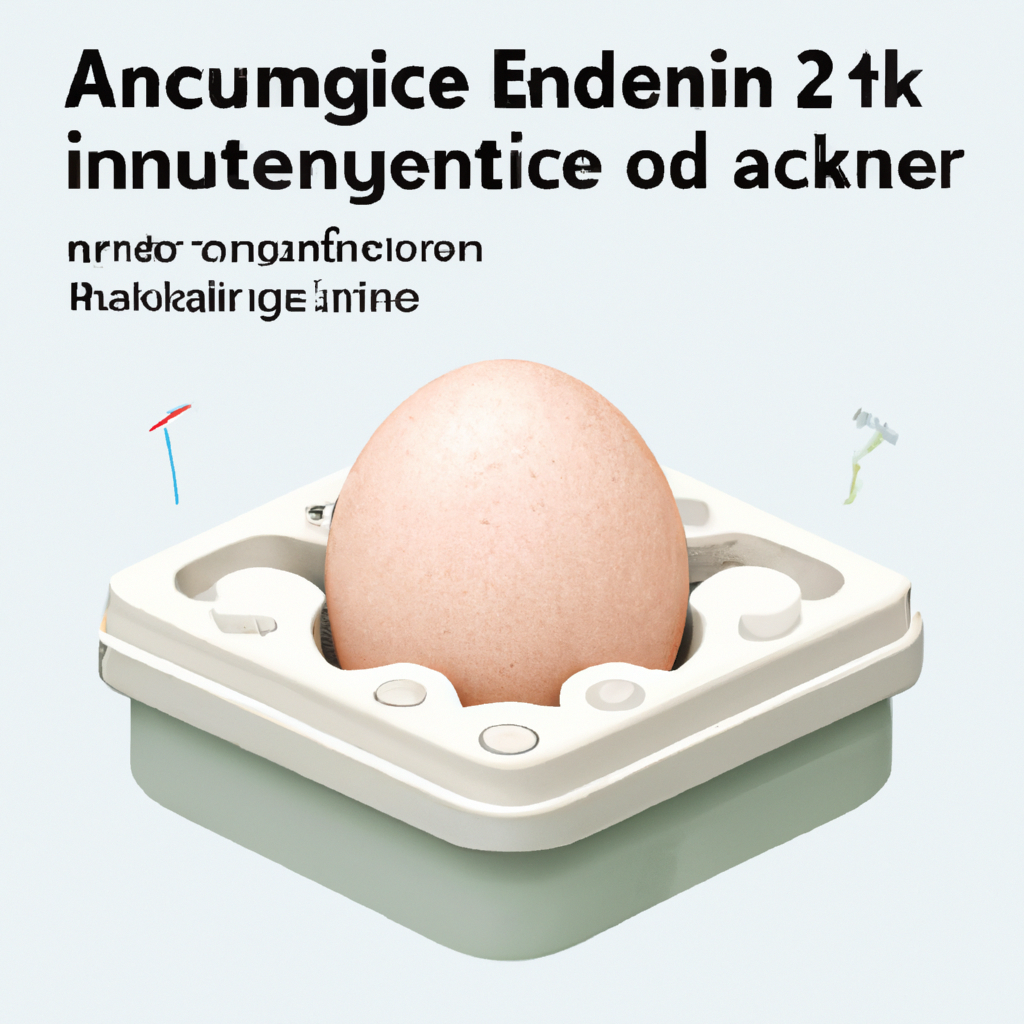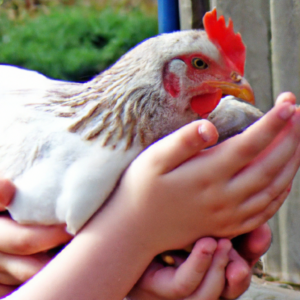
Have you ever wondered what the perfect humidity level is for incubating chicken eggs? If you’re a poultry enthusiast or planning to hatch some chicks of your own, getting the right balance of humidity is crucial for successful incubation. In this article, we will explore the importance of humidity in the incubation process and reveal the optimal range of humidity for achieving healthy, vibrant chicks. So, sit back, relax, and let’s discover the secrets behind the ideal humidity level for incubating chicken eggs!

Factors Affecting Incubation Success
Temperature
The temperature plays a crucial role in the successful incubation of chicken eggs. It is important to maintain a consistent temperature throughout the incubation period, as fluctuations can negatively impact the development of the embryos. The ideal temperature for incubating chicken eggs is around 99.5°F (37.5°C).
Humidity
Humidity refers to the amount of moisture present in the air and is another critical factor in incubation success. Maintaining the right humidity levels is essential for proper moisture loss from the eggs and the development of the embryos. Incorrect humidity levels can lead to complications during egg development and hatching.
Ventilation
Proper ventilation is necessary to ensure a constant supply of fresh air and the removal of excess carbon dioxide and moisture. Sufficient oxygen levels are vital for the embryos to develop, and inadequate ventilation can lead to poor hatching success. It is important to strike a balance between ventilation and humidity to create the optimal environment for incubation.
Egg Turning
Regular egg turning is necessary to prevent the embryos from sticking to the inner membrane and promote their proper development. Turning the eggs three to five times a day helps to distribute the heat evenly and prevents deformities in the chicks. Neglecting egg turning can lead to reduced hatching success and compromised embryo development.
Sanitation
Maintaining cleanliness and good hygiene in the incubator is crucial for incubation success. Dirty environments can harbor harmful bacteria, which can adversely affect the development of the embryos. It is essential to keep the incubator clean and sanitize it before each use to provide a healthy and safe environment for the eggs.
The Role of Humidity in Incubation
Moisture Loss
Humidity levels directly affect the rate of moisture loss from the eggs. Adequate moisture loss is essential for the embryos to develop properly, and high humidity can hinder this process. Maintaining the right humidity levels helps to ensure the necessary moisture loss, preventing complications such as delayed hatching or chicks unable to break out of the shell.
Water Vapor
Water vapor in the air within the incubator contributes to the overall humidity levels. By controlling the amount of water vapor present, you can regulate the humidity within the incubator. This is achieved by using various methods, such as adding or removing water trays or adjusting ventilation.
Embryo Development
The right humidity levels are crucial for the proper development of the embryos. Humidity affects the formation and growth of the air sac within the egg, which is essential for the chick’s ability to breathe during the hatching process. Insufficient or excessive humidity can lead to complications in embryo development, resulting in lower hatching success rates.
Hatching Success
Optimal humidity levels greatly influence hatching success. By providing the right amount of moisture within the incubator, you can ensure the eggs hatch successfully and the chicks emerge healthy. Maintaining the appropriate humidity levels at different stages of incubation is vital for the delicate process of hatching.

Ideal Humidity Levels for Chicken Egg Incubation
Setting Period
During the setting period, when the eggs are first placed into the incubator, the ideal humidity level should be around 50-55%. This slightly higher humidity helps to prevent excess moisture loss from the eggs before the embryos develop properly.
First 18 Days
In the first 18 days of incubation, the humidity levels should be maintained at around 45-50%. This lower humidity allows for the necessary moisture loss from the eggs as the embryos develop and the air sac enlarges.
Final Days
In the final days leading up to hatching, it is recommended to increase the humidity levels to around 65-70%. This higher humidity creates a more favorable environment for the chicks to hatch successfully by softening the eggshell and aiding in the chick’s ability to break through.
Measuring and Adjusting Humidity
Hygrometer
To monitor humidity levels accurately, it is essential to use a hygrometer, a device specifically designed for measuring humidity. A hygrometer provides accurate readings, allowing you to make informed adjustments to maintain the desired humidity levels throughout the incubation process.
Water Trays
Water trays are commonly used to add moisture to the incubator and regulate humidity levels. By adding or removing water from the trays, you can adjust the humidity accordingly. Placing larger water trays in the incubator helps to increase humidity, while smaller trays or removing water can reduce humidity.
Wet Bulb Thermometer
A wet bulb thermometer can be used to measure the temperature and humidity simultaneously. By comparing the readings of a wet bulb thermometer with a dry bulb thermometer, you can determine the relative humidity within the incubator. This information can help you make necessary adjustments to maintain the desired humidity levels.
Adding or Reducing Humidity
To increase humidity levels, you can add water to the incubator by using water trays, sponges, or a misting system. Conversely, reducing humidity can be achieved by increasing ventilation or using materials like silica gel or a dehumidifier in the incubator. It is important to make gradual adjustments to avoid sudden changes that can stress the developing embryos.
Evaporation Rate
The rate of evaporation within the incubator affects humidity levels. A larger surface area of water will increase the rate of evaporation, leading to higher humidity. Placing water in shallow containers or using larger water trays can help increase the surface area and evaporation rate, thereby adjusting the humidity levels accordingly.

Effects of Incorrect Humidity Levels
Excessive Humidity
If humidity levels are too high, it can lead to several issues during incubation. Excessive humidity can impede proper moisture loss, resulting in reduced air sac development and larger chicks struggling to hatch. It can also create a favorable environment for the growth of harmful bacteria, increasing the risk of infections. High humidity levels can significantly decrease hatching success and compromise the health of the chicks.
Insufficient Humidity
Insufficient humidity during incubation can also have detrimental effects. Low humidity levels can lead to excessive moisture loss from the eggs, resulting in chicks that are unable to hatch or hatch prematurely, which can affect their health and survival. Insufficient humidity can also lead to dry shells that are difficult for chicks to break, further hindering the hatching process.
Natural vs. Artificial Incubation
Natural Incubation Process
Natural incubation refers to the process of allowing a broody hen to sit on and hatch chicken eggs. The hen instinctively maintains the appropriate humidity levels by regulating her body moisture. The natural incubation process provides an ideal environment for the eggs, as the hen instinctively adjusts her behavior to ensure optimal temperature and humidity conditions.
Artificial Incubation Equipment
Artificial incubators are designed to replicate the conditions necessary for egg incubation. These incubators often come equipped with built-in features such as temperature and humidity control mechanisms. Monitoring and controlling humidity levels using artificial incubation equipment, such as water trays and hygrometers, allow for precise adjustments and better incubation success rates.
Humidity Requirements
Whether using natural or artificial incubation methods, humidity requirements remain the same. The ideal humidity levels discussed earlier should be maintained throughout the incubation process. With natural incubation, the hen will naturally regulate humidity levels within the nest, while artificial incubation requires more active monitoring and adjustment to maintain optimal humidity conditions.

Tips for Maintaining Humidity
Regular Monitoring
Regularly monitoring humidity levels is essential to ensure optimal conditions for egg incubation. Check the humidity levels multiple times a day, especially during critical stages such as the final days leading up to hatching. Keep a record of the humidity readings to identify any patterns or trends that may require adjustment.
Using Appropriate Equipment
Investing in quality incubation equipment, such as hygrometers and thermometers, is crucial for accurate humidity control. Ensure the equipment is calibrated properly and functioning correctly to obtain accurate readings. Using reputable brands and following manufacturer guidelines for maintenance and calibration can help maintain accuracy and reliability.
Water Management
Managing water trays and humidity levels involves careful consideration. Use distilled or filtered water to avoid introducing contaminants that could harm the embryos. Check water levels regularly, ensuring adequate moisture is present without exceeding recommended humidity levels. Clean and sanitize water trays regularly to maintain cleanliness and prevent bacterial growth.
Adjusting Ventilation
Ventilation plays a vital role in maintaining the right humidity levels. Adjusting ventilation can help regulate humidity, especially when excess moisture is present. Opening vents or adjusting fans and airflow can help reduce humidity levels. However, it is important to strike a balance to avoid excessive humidity fluctuations that may disturb the incubation process.
Humidity Tips for Different Stages of Incubation
Setting Period
During the setting period, it is important to maintain a slightly higher humidity level of around 50-55%. This helps to prevent excessive moisture loss and promote successful embryo development.
First 18 Days
In the first 18 days of incubation, the humidity should be reduced to around 45-50%. This lower humidity allows for proper moisture loss from the eggs and helps ensure healthy air sac development.
Final Days
In the final days leading up to hatching, increasing the humidity to around 65-70% is recommended. This higher humidity softens the eggshell, making it easier for the chick to break through during the hatching process.
FAQs about Incubating Chicken Eggs and Humidity
What happens if the humidity level is too high?
Excessive humidity can impede moisture loss from the eggs, leading to reduced air sac development and difficulty hatching. It can also increase the risk of bacterial growth and infections, decreasing hatching success rates.
What happens if the humidity level is too low?
Insufficient humidity can result in excessive moisture loss from the eggs, leading to chicks that are unable to hatch or hatch prematurely. Dry shells can make it difficult for chicks to break out, further hindering the hatching process and affecting chick health.
Can I use household humidity monitors?
Household humidity monitors may not provide accurate readings necessary for egg incubation. It is recommended to use specialized incubation equipment, such as a hygrometer, to monitor humidity accurately.
How often should I check the humidity level?
It is advisable to check the humidity levels multiple times a day, especially during critical stages such as the final days leading up to hatching. Regular monitoring allows for timely adjustments to maintain optimal humidity conditions.
Conclusion
Maintaining the ideal humidity levels is crucial for successful chicken egg incubation. Proper humidity ensures the healthy development of the embryos and increases the chances of successful hatching. By understanding the role of humidity, using appropriate equipment, and following the recommended guidelines, you can create the optimal environment for incubating chicken eggs and increase your chances of a successful hatch. Remember to regularly monitor and adjust humidity levels throughout the incubation process to provide the best conditions for your precious eggs.







